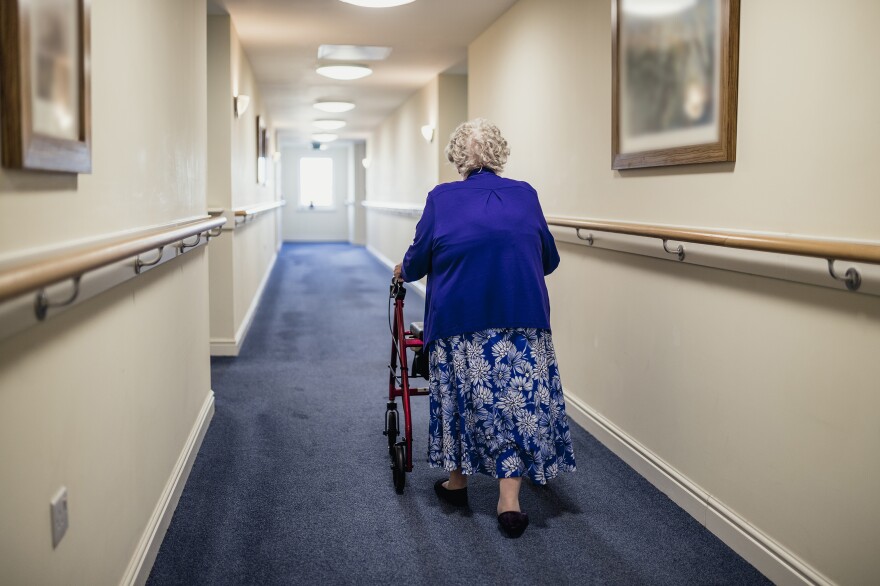Texas voters have overwhelmingly approved an amendment to the state Constitution guaranteeing residents of long-term care facilities, including nursing homes, the right to designate an “essential caregiver” who cannot be denied in-person visits, under most circumstances.
Proposition 6 stems from restrictions Gov. Greg Abbott imposed last year to protect residents during the COVID-19 pandemic. Nearly 88% of voters cast their ballots in favor of the amendment during the Nov. 2 elections on Tuesday, according to results from the Texas Secretary of State’s office.
“People were so upset about that protracted termination of visitation that they really felt it important not just to set it in statute, but to set it into the Texas Constitution — that the state will not prohibit in-person visitation like that ever again,” said Carmen Tilton, vice president of public policy for the Texas Assisted Living Association.
State long-term care ombudsman Patty Ducayet also supported the new caregiver protections.
“There are times when a necessary person has to be there,” she said. “Someone who isn’t an employee of a facility, I think, who really does have to be there and be protective for people to get decent care even during a public health emergency.”
Texas lawmakers approved the proposed amendment for the ballot when they passed Senate Joint Resolution 19 during the regular legislative session last spring. Backlash to the isolation many long-term care residents endured due to pandemic restrictions, also prompted the state legislature to approve Senate Bill 25, which requires long-term facilities to allow essential caregiver visits for at least two hours each day and permit physical contact. It also allows facility managers to seek approval to temporarily suspend visitation if it “poses a serious community health risk.”
Tilton said she and other advocates are concerned about how effective the amendment will be because it authorizes the legislature to provide guidelines for long-term care facilities to follow. Lawmakers may not be able to respond quickly to a future public health crisis that requires visitations be suspended, said Tilton.
“Something like ebola [virus], for example. If we ever did have an actual outbreak among multiple communities with ebola, it is my interpretation that Proposition 6 would require the legislature to issue additional guidelines for responding to that, if you needed to suspend in-person visitations.”
Texas voters also overwhelmingly approved the other seven state constitutional amendments on the ballot. That included another pandemic-related measure, Proposition 3, which bars state and local governments from limiting or suspending religious services for any reason.




